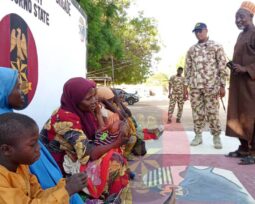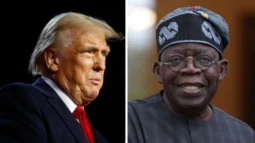By Umar Sani
Samuel Ortom, the former Gov of Benue State, is an interesting character with a compelling story one that he tells best himself. His journey from humble beginnings at a motor park to the grandeur of the Benue Govt House is nothing short of remarkable. It is a classic rags-to-riches tale, filled with ambition, resilience, and political drama.
Throughout his political career, Ortom was seen as a deeply committed and loyal member of the PDP. At the national level, he began as Director of Admin and Logistics and later became an elected member of the party’s National Working Committee. I had the privilege of working closely with him in a committee tasked with reviewing the PDP constitution. Our goal was to introduce tenure limits for members of the BOT, who previously served indefinitely. We also served on another reconciliation and integration committee aimed at uniting aggrieved members and repositioning the party. Our reports were widely praised and adopted without amendments due to their depth and forward-thinking recommendations.
I recall traveling with Ortom to Sri Lanka and to Akwa Ibom, where we participated in project commissioning and groundbreaking ceremonies for development projects spearheaded by Godswill Akpabio. During those trips, he spoke enthusiastically about having the support of then-Gov Gabriel Suswam and prominent Benue elders. He was thrilled by their endorsement. But just six months before the election, Suswam reversed his stance and began supporting the then-Speaker of the Benue State House of Assembly, Tehemen Tazoor.
Feeling betrayed, Ortom defected to the APC with the help of Sen George Akume. He not only joined the APC but also secured its governorship ticket unopposed. The rest, as they say, is history.
His first term as governor was riddled with controversy, both within the state and beyond. One of his most notable public clashes was with Wike, the ex-Gov of Rivers State. Their verbal exchanges were heated and frequent. How they later reconciled and became part of the G5 also known as the Integrity Group is still puzzling. What is clear, however, is that they share a similar background, having all risen from humble beginnings. Perhaps the saying is true, Birds of the same feather flock together.
Ortom did not take long to abandon Akume and forge a new political alliance. When the PDP faced internal divisions over the issue of zoning, the party set up a committee to review the arrangement and make recommendations. Ortom, who had earlier recommended Iyorchia Ayu as National Chairman, was chosen to head that committee. As a self-proclaimed supporter of a southern presidency, this was his moment to stand by that conviction. But his committee recommended that the presidential ticket be thrown open to all zones, without any form of zoning. He completed and submitted the report without any minority opinion or dissenting view.
Strangely, he later claimed to support the idea of a southern presidency or perhaps it was just a Wike presidency. He even confessed that he did everything possible to help Wike clinch the PDP ticket, but failed. Now, Ortom boldly says he has no regrets working against Atiku, the party’s eventual candidate, because it was in line with the interests of the Benue people.
One is left wondering, was there a public referendum by the people of Benue authorizing him to act against the party that gave him everything? Or was it simply the influence of Wike’s financial inducements and the comfort of familiar alliances and trade secrets among political comrades?
Ortom’s story is not just one of personal success; it is also a lesson in how loyalty in politics can be conditional, fragile, and often subject to personal or collective ambition. His decisions may have been guided by what he saw as the “interest of his people,” but they also raise important questions about consistency, principle, and the real cost of political expediency.







